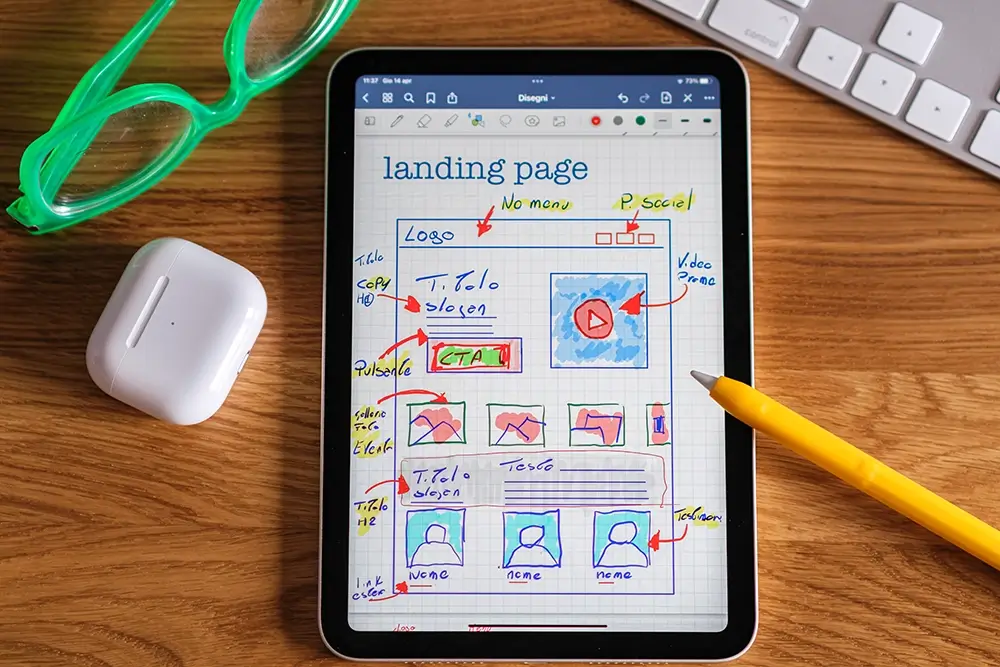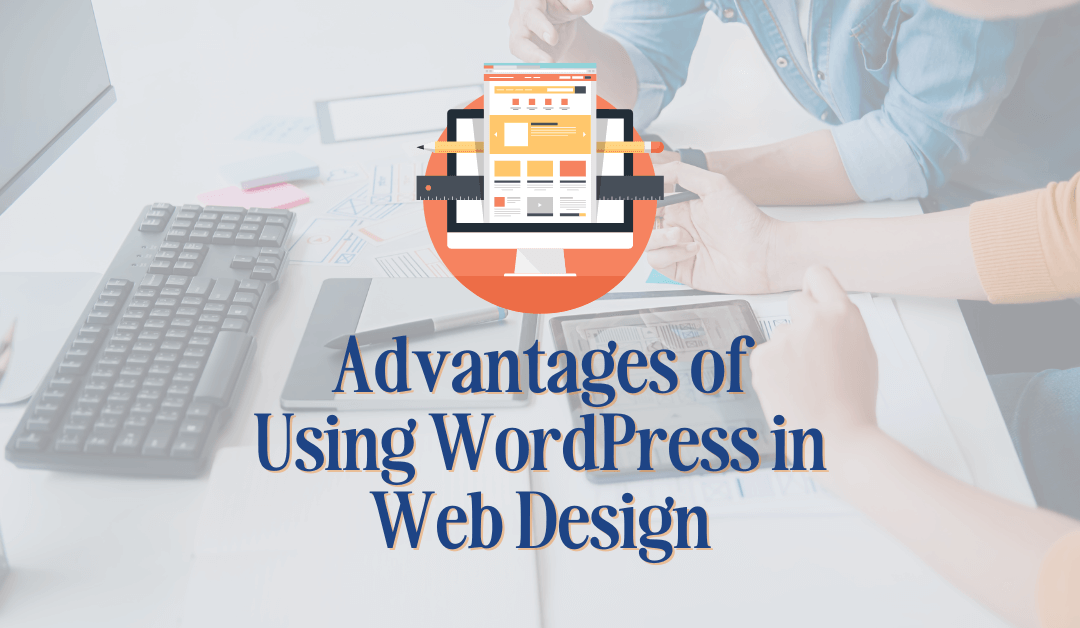In the current digital age, having a website is necessary for businesses and individuals who want to establish their online presence. A website provides a platform to showcase products and services and serves as a communication medium between the business and its clients.
Therefore, web design has become integral to any company's marketing strategy. WordPress is one of the most popular Content Management Systems (CMS) available for web designers today.
It is an open-source software that powers over 38% of all websites on the internet. WordPress offers an intuitive interface that makes it easy for users with little or no experience in coding to create professional-looking websites.
Explanation of WordPress
WordPress is a content management system that allows users to create and publish digital content without knowing how to code. The software includes a WYSIWYG (What You See Is What You Get) editor, meaning that users can create pages or posts without technical knowledge.
One of the key features of WordPress is its plugin architecture, which allows developers to extend the software's functionality in various ways. This means that users can add new features such as contact forms, social media integration, e-commerce capabilities, and more by simply installing plugins.

Brief History of WordPress
Matt Mullenweg and Mike Little created WordPress in 2003 as an offshoot project from b2/cafelog. Since then, it has evolved into one of the most widely used CMS platforms on the market today, with over 40 million downloads worldwide.
WordPress started out primarily as a blogging platform but soon developed into something much more comprehensive. Over time, it transformed into a complete CMS system with robust tools such as custom post types and taxonomies – allowing web designers more flexibility in structuring their website's content.
Importance of Web Design
Web design has become an essential aspect of online branding and marketing. An excellent web design reflects your business values, boosts brand credibility, and helps attract potential customers to your website.
A well-designed website creates a positive user experience, which can translate into increased engagement and sales. Therefore, it is crucial to have a visually appealing, well-organized website that makes it easy for users to find what they want quickly.
Effective web design requires knowledge of usability principles, typography, color theory, and many other elements that contribute to creating a great user experience. In the next section, we will explore some of the advantages that WordPress offers web designers when it comes to creating professional-looking websites.

Advantages of using WordPress for web design
WordPress is a widely acclaimed web development platform that offers numerous benefits to web designers. It is user-friendly, customizable, SEO-friendly, mobile-friendly, and has plenty of plug-ins and widgets, making it an ideal choice for building a website. Below are some of the advantages that make WordPress stand out in the world of web design.
User-friendly interface
One of the most significant advantages of using WordPress is its user-friendly interface. Web designers can quickly learn how to use it without extensive coding knowledge or experience.
The platform makes it easy to edit texts and images through its intuitive dashboard. The drag-and-drop feature allows users to move elements around on their pages easily.
Customizable themes and templates
Another benefit of using WordPress is its vast selection of customizable themes and templates that enable designers to create unique websites without starting from scratch. The themes come in various styles, colors, fonts, and layouts that can be adapted to suit different needs. Users can customize the templates further by adding CSS codes or plugins.
SEO-friendly structure
WordPress provides an excellent foundation for building SEO-optimized websites because it has clean code structures that search engine crawlers can easily read and index. It also allows users to optimize their website content by providing meta tags for each page or post, customizable URLs, sitemaps generation tools, etc.
Mobile responsiveness
Mobile compatibility is crucial when designing websites in today's world, where mobile devices account for more than half of internet traffic globally. WordPress has built-in responsive design features allowing users to automatically create websites optimized for different screen sizes.
Plug-ins and widgets
WordPress provides access to a vast repository of plug-ins and widgets developed by various developers worldwide that enhance website functionality. These plugins allow users to add features such as contact forms, social media sharing buttons, image galleries, etc.
E-commerce capabilities
WordPress also offers e-commerce functionalities that enable users to set up online stores easily. Users can use various WordPress e-commerce plug-ins like WooCommerce to sell products or services online. WooCommerce integrates with popular payment gateways such as PayPal and Stripe, making it easy for buyers to make payments securely.
These advantages of using WordPress make it an excellent choice for web design. Its user-friendly interface, customizable themes and templates, SEO-friendly structure, mobile responsiveness, plug-ins and widgets repository, and e-commerce functionalities are just a few of the reasons why WordPress is the go-to platform for web designers worldwide.

How WordPress benefits web designers
Web designers face many challenges in their work, including time constraints, budget limits, complex workflow processes, content management difficulties, and the constant need for creativity. Fortunately, WordPress provides a solution to all these challenges. Here are some ways that WordPress makes life easier for web designers:
It saves time and money
WordPress offers a range of pre-designed templates and themes that can be easily customized, saving web designers valuable time and money. Without starting from scratch every time they create a new website, web designers can focus on other crucial elements such as content creation, designing custom graphics, or optimizing the website's speed.
In addition to pre-designed templates and themes, WordPress also offers a wide array of plug-ins that serve various functions, such as social media integration or e-commerce capabilities. Using these plug-ins saves the designer time by not coding these features from scratch and not worrying about compatibility issues.
Efficient workflow management
Collaborating with team members on a project can be challenging if everyone is not on the same page regarding what is expected of them. However, WordPress simplifies this process by providing clear workflow management tools. Designers can easily assign tasks to team members using plugins such as Trello or Asana.
These tools ensure that every task is accounted for while also providing deadlines for each task. They have comment sections where team members can communicate with one another, ensuring everyone is aware of what is happening at all times.
Simplifies content management
Managing large amounts of content on websites used to be a tedious task requiring knowledge of coding languages like HTML or CSS. WordPress's user-friendly interface for adding new pages or blog posts without needing any technical expertise in coding languages makes it simple for anyone managing the website.
With features like WYSIWYG (What You See Is What You Get) editors, it is easy to format text and add images. WordPress also offers a media library that organizes photos and videos, making it easy to find and use them when needed.
Provides a platform for creativity
WordPress is a highly customizable content management system, which means web designers can use their creativity to design unique websites using the platform's features. With thousands of pre-made themes available or the ability to design your own from scratch, web designers can create websites that are tailored specifically for their clients.
WordPress also offers custom post types that provide web designers with unique functionalities like contact forms or event calendars without learning new coding languages. Additionally, because WordPress has such an enormous following, there is no shortage of people sharing tutorials on how best to utilize WordPress's features, pushing one's creative limits even further.
Theme Customization Options
WordPress provides a vast array of design themes and customization options to choose from. The platform's built-in theme editor allows web designers to customize website layouts, colors, typography, and more.
Additionally, WordPress themes come with pre-designed templates that make it easier for web designers to create a unique website. The flexible platform allows developers to incorporate custom code into their websites.
One popular way to customize themes in WordPress is by using child themes. Child themes are built upon the parent theme but offer more control over the design elements while maintaining core functionality.
For instance, web designers can add custom CSS styles or modify the header area of a child theme without affecting the parent theme's code.
WordPress Security Measures
Website security is a top priority for web designers who use WordPress as their development platform. Fortunately, WordPress offers various security measures that help protect websites from malicious attacks and hackers.
One such measure is two-factor authentication (2FA), which adds an extra layer of security when logging into your website. This authentication method requires users to provide two forms of identification before accessing sensitive information or making changes to a website.
Another way WordPress maintains site security is through regular updates. These updates ensure websites can access the latest features and bug fixes and address potential vulnerabilities and security threats.
WordPress Website Speed Optimization Techniques
Website speed optimization is crucial for providing users with an excellent browsing experience and improving search engine rankings.
Slow-loading websites often result in high bounce rates and reduced user engagement. Fortunately, WordPress developers can use several techniques to optimize website speed, such as image optimization, caching plugin installation, and minification of scripts & stylesheets, among others.
Image optimization involves compressing images without reducing their quality; this reduces file size and hence saves loading time on webpage requests improving overall performance. Caching plugins help store frequently requested data on local disks instead of fetching them from databases saving valuable time during repeated requests.
Minifying scripts and stylesheets is another technique that involves the reduction of file sizes by removing unnecessary characters like white spaces, comments, and unnecessary line breaks. Overall, these optimization techniques contribute to creating fast-loading websites that provide an excellent browsing experience for users.
TLDR;
WordPress has become a prevalent platform for web designers due to its user-friendly interface, customizable themes and templates, extensive plug-ins and widgets library, SEO-friendly structure, mobile responsiveness, and e-commerce capabilities.
WordPress also benefits designers by saving time and money thanks to its efficient workflow management and simplified content management. It is also a platform for creativity that provides design flexibility.
We have seen that WordPress offers an array of advantages to web designers compared to other platforms. Its ability to offer top-notch websites that are customizable not only saves time but also enables the designer to come up with unique designs that stand out from the competition.
Additionally, plug-ins and widgets make updating content on the website much easier. Regarding future prospects for WordPress in web designing, it is evident that this platform will continue dominating as more businesses move online.
With newer technologies coming up every day, like Artificial Intelligence (AI), it is not hard to imagine a future where WordPress integrates these technologies into its platform, making things even better for web designers. WordPress has proven itself over the years as an excellent choice for web design and looks set for continued growth in the foreseeable future.



